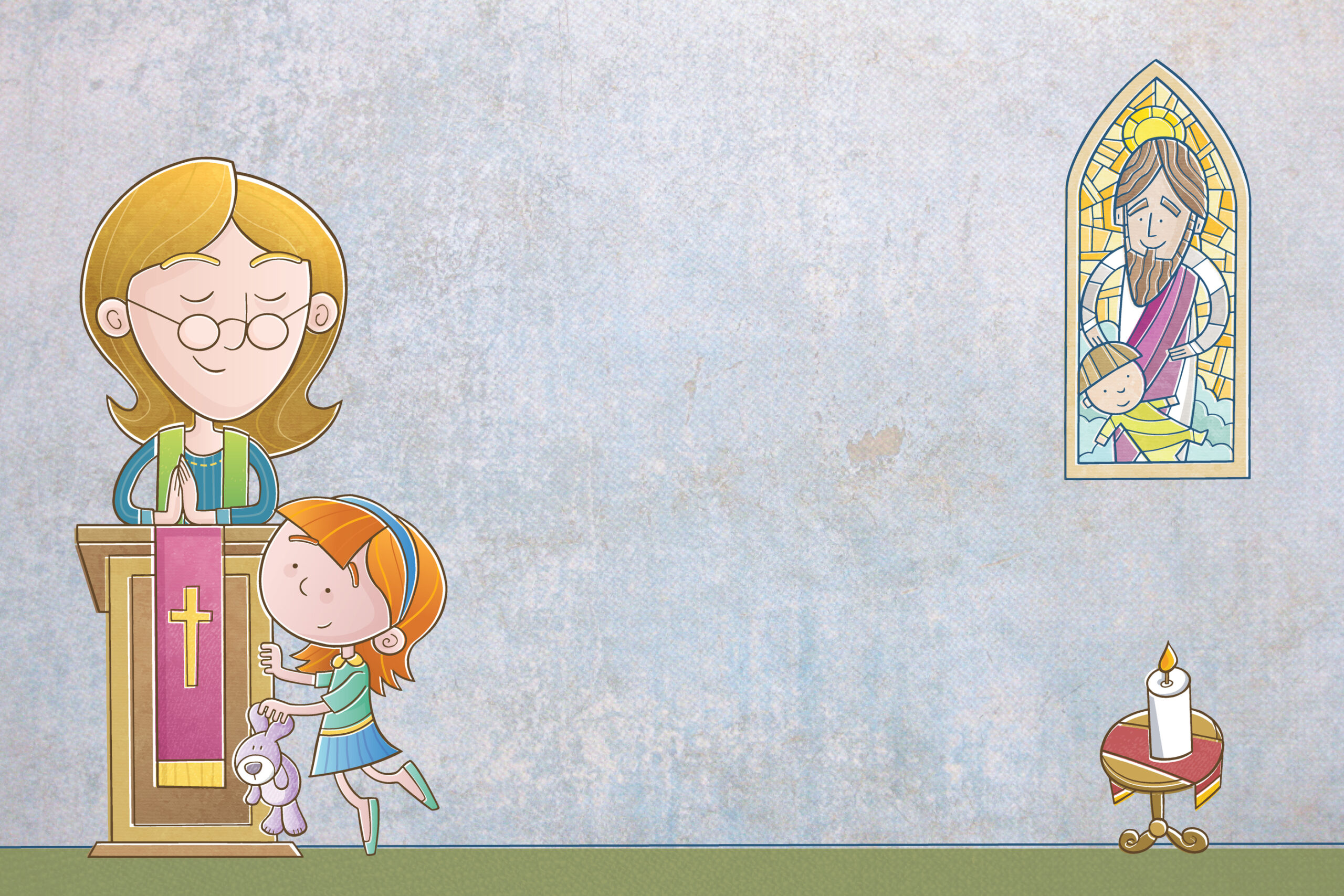You may have noticed blessing bags in Churches around the Diocese. This is part of our effort to encourage a child and family friendly culture in our churches.
The blessing bags are a gift we give to children who come to Church. They are not just an activity pack to have on hand, they are a gift given with love.
I heard a beautiful story about a boy who was given one in church recently. He carefully opened the bag and took out each item, one by one. He then put each item back and carefully folded the bag. Finally, he took the bag home to put in his treasure box! This little boy thought Church was the best thing ever! This is one small story of one child in one place. It shows the beautiful ways we can thrill a child’s heart and show families how welcome they are.
All Children Welcome – all the time?
When thinking about child friendliness, you need to consider the facilities you offer and your tolerance for noise. At the very least, providing changing tables is essential. But ask yourselves if you are willing to disrupt your worship space to accommodate small children and if you are willing to put up with some noise and chaos.
Rows of pews are not an ideal environment for wiggly children. With sharp edges and confined spaces, they are ripe for falls, bumps, and squeals. It can also be stressful to try to contain a child in a row of pews. It reminds me of flying across the Atlantic with my children sitting in the middle section of a 747. Not a comfortable journey, though my son did try to walk all the way to Germany one time!
I have sympathy for parents on airplanes whose children run a little wild, and I feel the same in Church. If a parent makes the effort to come to Church with young children, let’s try to make their lives a little easier.
Many churches dedicate a section of their pews, usually towards the back of the sanctuary and create a play space where parents and children can be present in Church in a more relaxed way. Some will include a comfortable couch and soft toys or a colouring space.
Remember the stresses of parenting young children. If we make it even more stressful for parents in Church by making no accommodations for their needs or even worse, consigning them to the basement of the Church, why would they come? If we shush children up in church, then are they welcome at all?
The point is to try to show some love to young parents and give them a break so they can be in church. It is also to foster spirituality in the youngest members of the community who are themselves innately spiritual beings. Spiritual formation begins at birth and continues for the whole of our lives.
Small children are noisy little creatures and will not necessarily be silent at the silent times of the service. On the other hand, the raucous sounds of children in church always signifies hope and life. We know there is another generation because they are there with us making their presence felt. This reminds us that, as with youth, young children are not the future of the Church, they are very much part of the now of the Church.
Having children present in a service they can barely follow, is an investment in their spiritual selves that can have lifelong benefits. They may not understand what they are seeing, but these vivid images will stay with them and in time, they will be able to put the many pieces of the puzzle together. Later, this will provide a reservoir of memories and traditions for their lives.
I recall sitting with my parents in Church and found myself drawn to the stained-glass windows. Their colours were mesmerising to me. I was in a service recently where a little baby was trying out her lungs as she sang along with the choir, her special music lingering in our ears after the organ had ceased. Heaven!
Children’s Spirituality: The power of story
Many churches have a children’s “moment” towards the beginning of the service, usually with the priest sitting on the floor. This can be a way to integrate children into the service at the beginning, but it can quickly become little more than a gesture before the children go do their thing downstairs and the adults stay upstairs. I confess that sometimes my children’s story was thought up during the processional hymn as a digest of the sermon. We can do better than this.
Much of Sunday school is based around story, but I have found many adults like to hear the stories of the Bible themselves, stories they may not have heard for years. These are the stories of our faith, and they are meant for all generations. Perhaps sometimes in Church everyone could be integrated into a beautiful storytelling time which invites all to wonder and make meaning.
Godly Play storytelling creates sacred space to present the stories of our faith, wonder about them together and then find open ended ways for us to engage with the stories in our own way. Created by Jerome Barryman of the Episcopal Church, Godly Play tries to integrate what happens upstairs and downstairs to allow children to make connections with the stories they hear and the liturgy they see. I was telling a Godly Play story in church one time during a service and a child looked at one of the stained-glass windows and pointed out that it was the same story.
I have told Godly Play stories to both children and adults and the responses I have heard are always deeply moving. We all have the capacity to wonder. Children are innately spiritual beings, and our role is to create space to allow them to explore faith their way.
What about the Eucharist?
There continues to be debate about allowing young children to participate in the Eucharist by receiving Holy Communion. The reason given is that children should wait until they can “understand” what is going on. Others prefer to wait until confirmation.
Eucharist is a beautiful mystery of the Church, and I suggest none of us understand what it is all about. It is a gift, a symbolic and sacramental action that binds us to Christ and to one another. Why should we exclude children from this? It is a way to include children in the ongoing story of faith and of the People of God. When is the right age?
When I was a young child in the early 70s, it was becoming possible for children to receive communion at the discretion of their parents. As the church we went to tended to be more experimental, I was allowed to receive when my mother thought it was right. This was when I was about four years old. She taught me how to approach the altar rail, to kneel and hold my hands the right way. She taught me the reverence needed for that moment. Over the years of my childhood and adolescence, participating in communion along with everyone else, gave me a deep sense of belonging to the People of God that has formed the foundation of my faith.
Which brings me back to the blessing bags. They are a small gesture, but from the perspective of a five-year-old, a big deal. Think of children’s ministry that way: the giving of gifts to children and their parents, creating the foundation that lasts a lifetime.
For more information or resources contact us!


